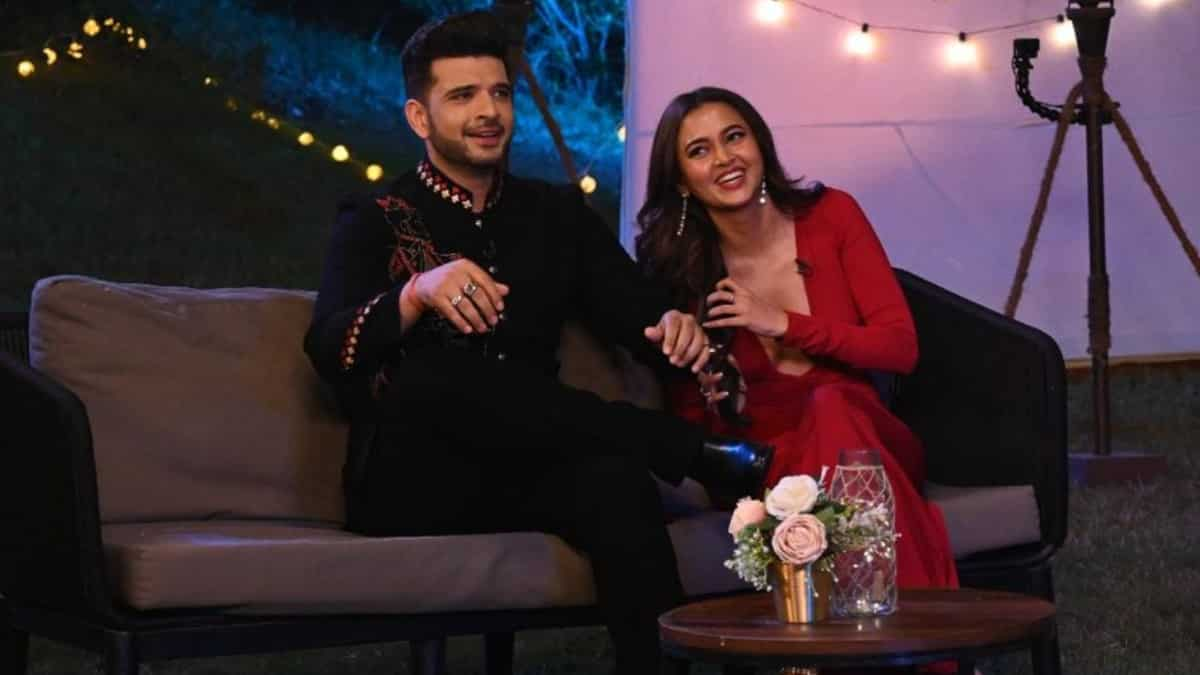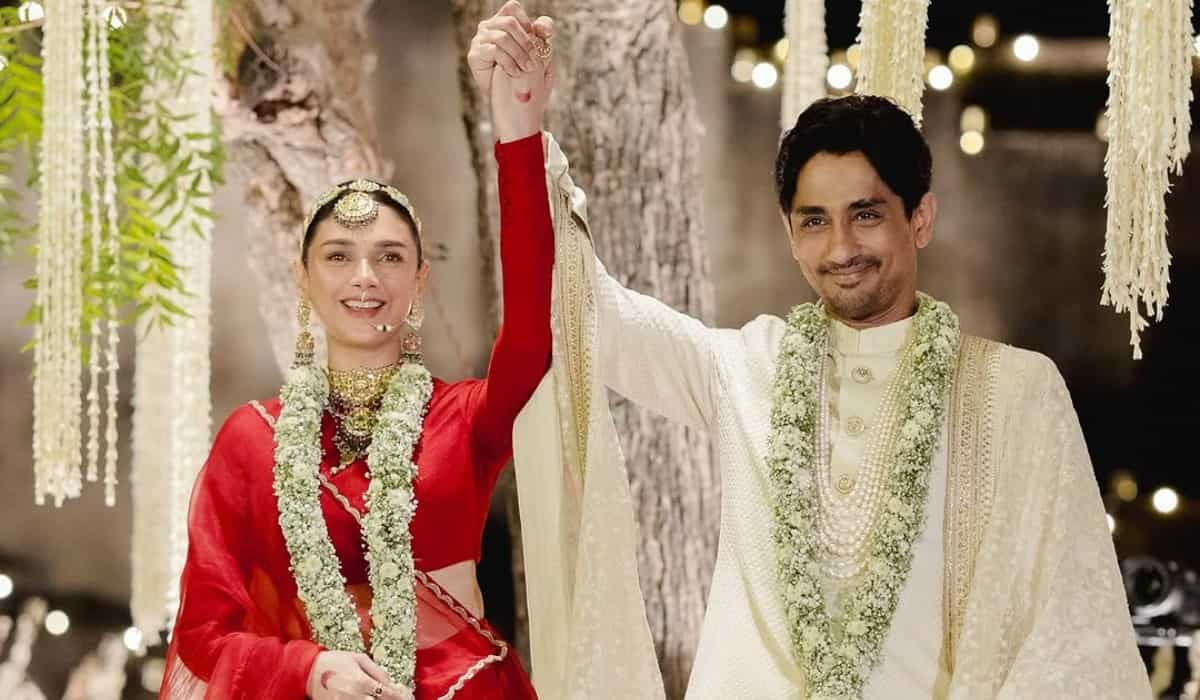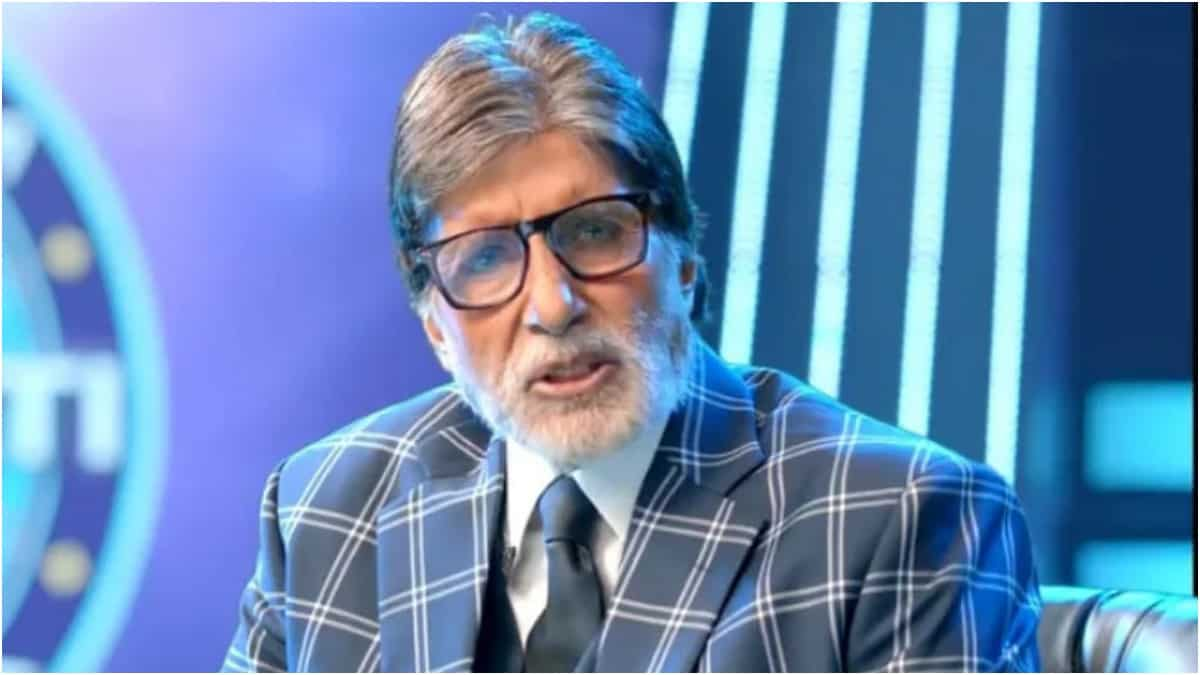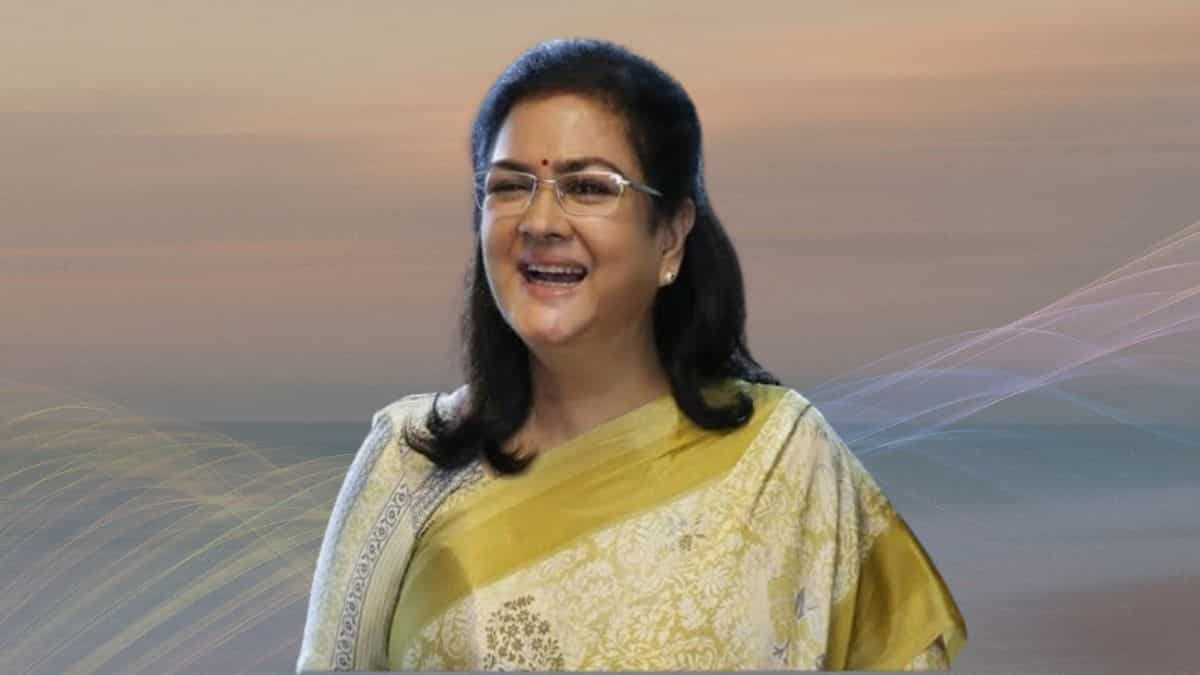
Urvashi On Working In Ullozhukku, Love For Books & Hema Committee Report
6 months ago | 66 Views
IT has been an eventful fortnight. The Kerala State Film Awards were announced, and Urvashi won Best Actress for Christo Tomy’s Ullozhukku, co-starring Parvathy Thiruvothu. This conversation was supposed to flow like water, fitting for a film that is heavy with downpours, guilt and grief. But, then the Hema Committee report on sexual harassment in the Malayalam film industry was released after years of delay.
When most male stars won medals for non-reaction to the report, and some female actors of the past insisted the industry was a safe space, Urvashi, who has been a part of the industry since she was in her teens, spoke up for those harassed over the years. She insisted we had to speak about the report, because it is a seminal moment for the industry and can bring in much-needed change, across industries.
Some conversations take their own path. Somewhere, a book was mentioned. And then, the actress, known for her rich body of work, dived deep into her love for language, books, and re-reading old favourites. Author names were not dropped for effect, but they came from a place of deep affection for their creations. Characters were recalled, and their traits were discussed.
Hence, this very unstructured interview. On Ullozhukku, the Hema Committee report, Urvashi’s career and performance process, her ability to resist being slotted, and books.
Edited excerpts:
In a film that’s predominantly about grief, your character rarely wails or cries. How difficult was that to translate on screen in Ullozhukku?
We all waited four years for this film to be made. I knew that it was going to be a 45-day shoot. If I cried for that many days, I knew I’d fall ill. And so I decided to stop the grief at the throat level, so my choked voice would convey what the tears might have. But that came with its own set of issues because it was raining and the atmosphere was depressing. I tried my best to keep my spirits alive by forcefully cracking jokes and eating murukku and all I could do to not think about the grief. I put myself through a lot for that role. I could not snap out of Leelamma and would go to bed with the TV on. Sleep suffered, as did my health.
After a long time, for this film, I delved into my past. When I was 23 years old and dubbing somewhere with my mother, I got a call saying my brother had ended his life. I struggled to make an STD call and gathered sketchy details. I had to maintain my composure in front of my mother because I could not tell her anything till I knew for sure. This is a boy I raised, he was my bommai (doll). The agony I went through that day, decades ago, I re-lived when shooting for Ullozhokku. This helped me create some more layers for Leelamma.
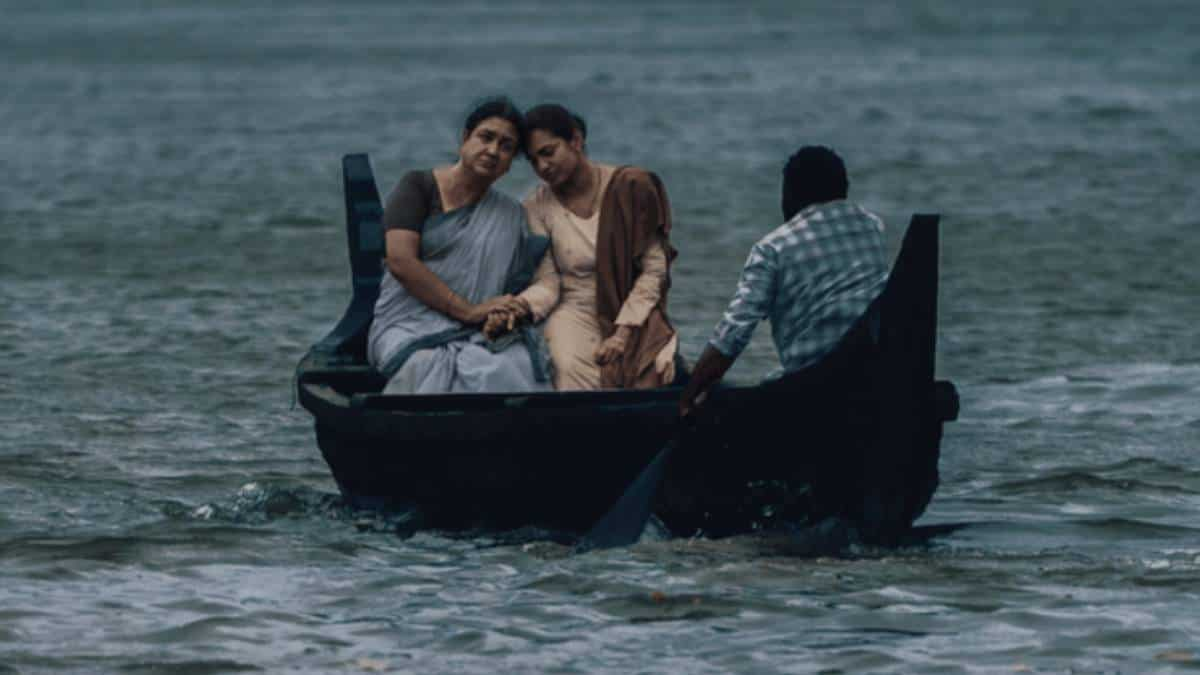
How was it to work with the Ullozhukku team?
It was great to work with a young director — they come with so many visual aids. They come with a sense of history too, because by swiping on a mobile phone, they can watch the oldest films, and learn. We did not have that luxury.
It was wonderful working with Parvathy. I think her being my co-actor helped me enact Leelamma better. When you have a good co-actor, you become alert, you hone your craft better. I see that she’s been speaking kindly about me. That’s endearing. In our times, co-actors generally wouldn't praise the other. This generation is far more generous.
But, even then, I would always appreciate a good performance, because my parents told me that it is the only way to behave. They dinned it into me that a good performance by someone else should not trigger an inferiority complex in me. That I should walk with my head straight and tell them they did a good job.
Over the years, across industries, you’ve managed to have a chosen bouquet of films across genres — family dramas, comedy capers, and you’ve resisted being slotted. How did you manage that?
I think I’ll thank my parents for instilling in me the ability to choose well. They always told me that I don’t have to do a film, and that I must always want to do a film. And so, I had to choose from among the good offers that came my way. I worked with good directors, and learnt on the sets.
I think my mother’s sense of humour rubbed off on me. She used to write comedy skits and songs, and that is my biggest blessing. It helped that we siblings were raised in a drama troupe. We grew up amidst Amma's dance, her work in All India Radio as an announcer, the music for the plays, dialogues, and mingling with the big writers of the day. And then, the amazing audience the plays elicited.
And though I entered the film industry when I was 13 or 14, I kept saying I’d go back to school. I did not particularly like the field of cinema, neither was it my chosen profession. But, at one stage, I understood and accepted that this was going to be my field. The sets were my school, college and university. I honed my craft there.
I like to offer variety when it comes to expressions. I am not the workshopping kind. If they go in for five takes, they will get five ‘different’ takes, not necessarily one that is an improvement over the other.
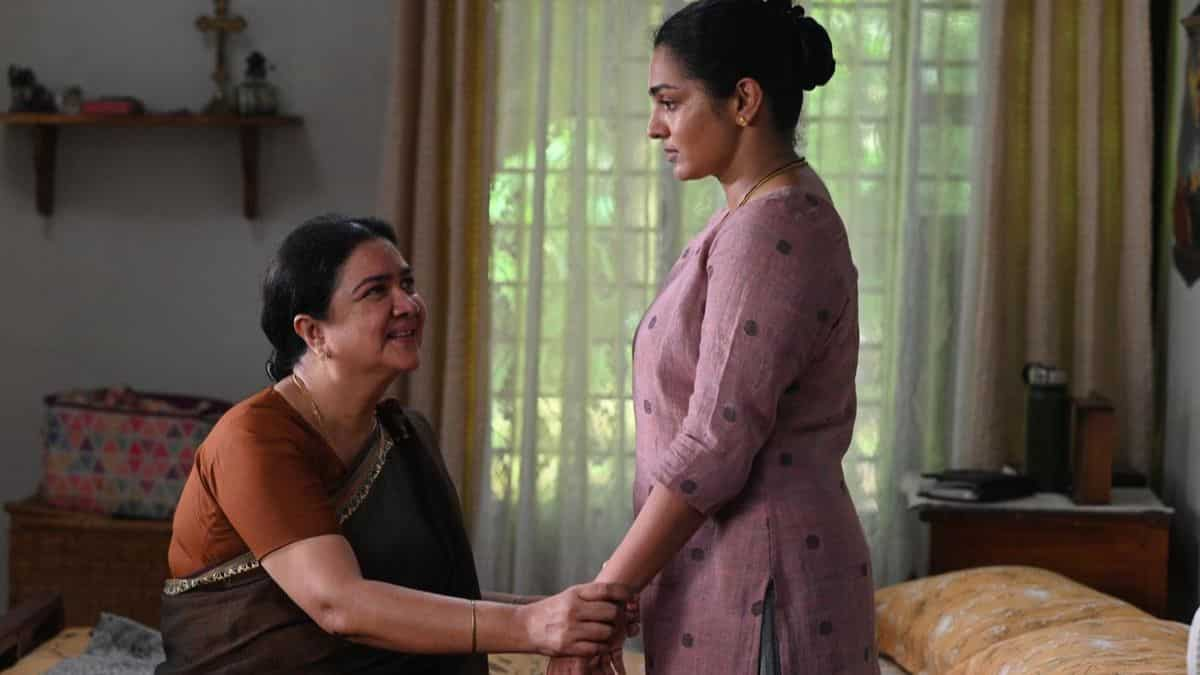
You are known for your felicity with languages. How did you pick up a love for languages?
I grew up in Trivandrum, speaking both Malayalam and Tamil. Amma wrote and spoke in Tamil, so it was a familiar thing to learn. But, when I came to Madras, I realised that my dialect was very different from what they spoke locally. Then, I picked up the Madurai slang, and then Madras Tamizh. This helps me slip into a character better, and I interact better with people, because language is not a barrier.
Let’s speak about your love for books. How did you sustain your reading habit while handling a demanding career?
Books are my first love. I surround myself with friends who love books. My reading suffered when my children were younger — I’d get upset if they scribbled on the books — and I’d wait for them to play games or sleep before taking out my books.
I read everything — from short stories to weekly series to novels. I recently re-read Kanmani Gunasekaran’s Korai, about a family’s struggle to till their land, and eradicate the wild tuber (Korai) growing there.
I love the creations of Ashapurna Devi and Mahasweta Devi. The former wrote extensively about women and their struggle for equal rights, while Mahasweta Devi wrote about tribal people and the lives of those oppressed.
In Tamil, I’d read Sivasankari, Anuradha Ramanan, novels and any mini-series that would appear weekly. I’d wait for the book to reach me because I’d be shooting elsewhere. There was no other way to know what was happening next in a story. I would wait for Rani Muthu, and the questions they printed on the back cover, and quiz everyone.
How much we waited to read books! We could even identify artists using their signature strokes on the paintings! I would wait to read Rajesh Kumar’s crime thrillers. I’d get tensed that if the modus operandi was written with so much detail, what would happen if thieves read it? Sometimes, I would get the magazines a full month late, but that joy was unparalleled.
There is the late Sri Lankan Tamil writer S Ponnudurai (EsPo), who wanted me to translate one of his works into Malayalam. I love how pure his language was. The Tamil word he used for a classmate was Udansaalai Maanaakkan. What a word that is, how rich in meaning! I’d called him after reading one of his works, and he was amazed that someone who grew up in Trivandrum loved Tamil so much. I told him the industry had others like me. I would have long conversations with Kamal on literature. The student in us remains alive.
When I met Jayakanthan Sir, I told him how amazed I was at the characters he created. Imagine the range of women and men he wrote. His writing was so good, they were ready to be translated perfectly onto the stage and screen.
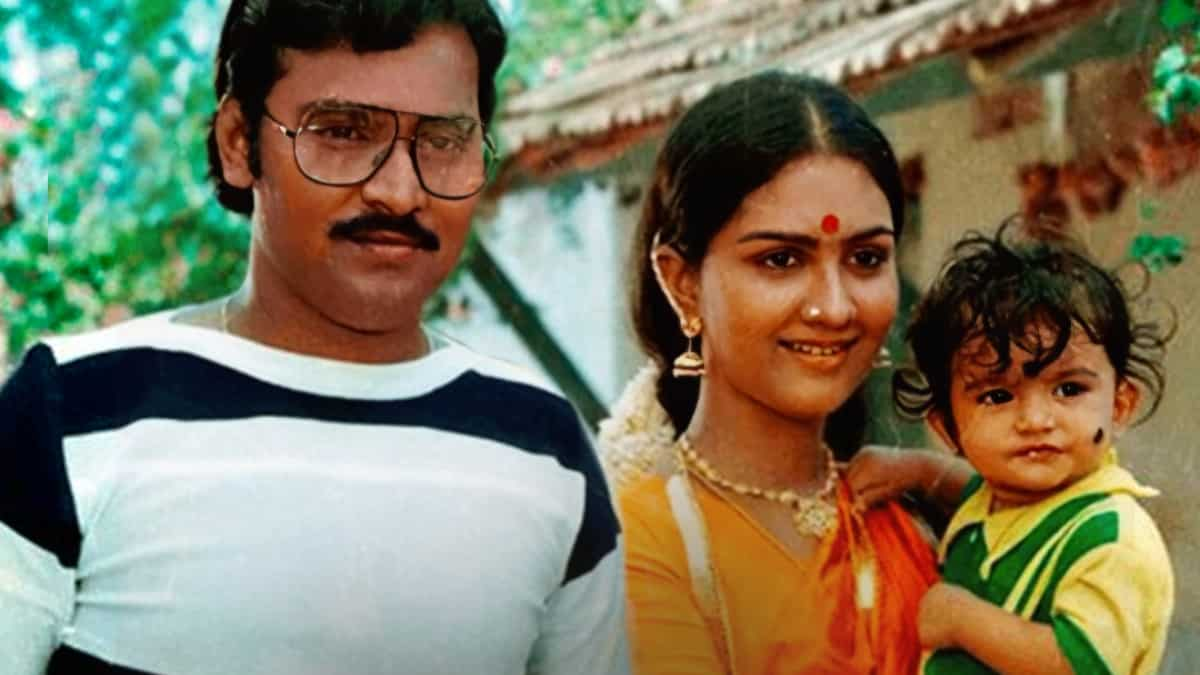
What have your inputs been to some films that have gone on to pass the test of time? Say a Mayabazar 1995 in Tamil, where you play the child-like Suji and the exorcist Mayamma…
That’s because of the freedom Keyaar, the film's director, gave me. I’d already done a guest appearance in his film Vanaja Girija, which had been stalled for some time. I had just finished Michael Madana Kama Rajan, and when I went to the set, I felt the role did not ask for much. When I shared this with him, he told me the film was a remake of Engamma Sabatham, and that I was playing a character originally portrayed by Manorama. He told me I could sit with the writer and improvise my lines. I got a special award for that film.
When the same director signed me up for Maya Bazaar 1995, he told me I had to portray a mix of innocence and guile, and that became possible because of the freedom I was given.
This happened again with Rettai Roja, a remake of the Telugu film Subhalagnam {the film was later remade in Hindi as Judaai, starring Sridevi, Anil Kapoor and Urmila Matondkar}. No heroine would have been willing to do that role which was definitely grey, but I was charmed by it for that very reason.
More recently, when I worked on Sudha Kongara’s Soorarai Pottru, and Mookuthiamman and Veetla Vishesham, by RJ Balaji and NJ Saravanan, I received that same freedom. In the emotional scenes of Soorarai, Sudha would let me perform till I wanted to, and not call a ‘cut’. In the other two films, they told me the scene and asked me to go with the flow when it came to the dialogues.
In the midst of your numerous award-winning films, we tend to forget your strike rate at the box office, right?
Ha, is that so? I am glad that of the characters that came to me, I chose a happy variety that worked well at the box office too. Good cinema chose me, I did not choose it. I did not reject those good films, and that’s my luck.
At a time when many are brushing aside the findings of the Hema Committee report, you’ve been a rare voice batting for those who suffered.
Yes, I know of fellow actors who have gone through it. Saying otherwise is just wrong. You cannot ignore or whitewash what others have gone through.
People have received strange requests, actresses have found someone hiding behind the curtain in their hotel room, there have been random knocks on the door… So many girls have suffered a mental breakdown. We need strict laws in place to prevent such things from happening and to take action if it happens.
How do you see the Committee’s report? What have your experiences been?
I began working at a time when producers and directors were the stars, and they created issues for some women. It was very hurtful that directors, who were like your teachers, tried to misbehave. Luckily, thanks to a gossip column in Tamil, a narrative was created that even during my first movie Mundhanai Mudichu, I would threaten the director that I’d leave the set, and that my family was troublesome. That reputation followed me to Kerala. So, I was largely not troubled. I will not say attempts were not made, just that they could not be implemented. There were things like being made to repeat a shot endlessly, even if you’d performed well. I was 14 then and innocent and did not understand. Others would tell me that I was being treated that way, because I did not agree to what they wanted. Soon, I learnt the ropes, became aware and knew to stay away from some people and their movies.
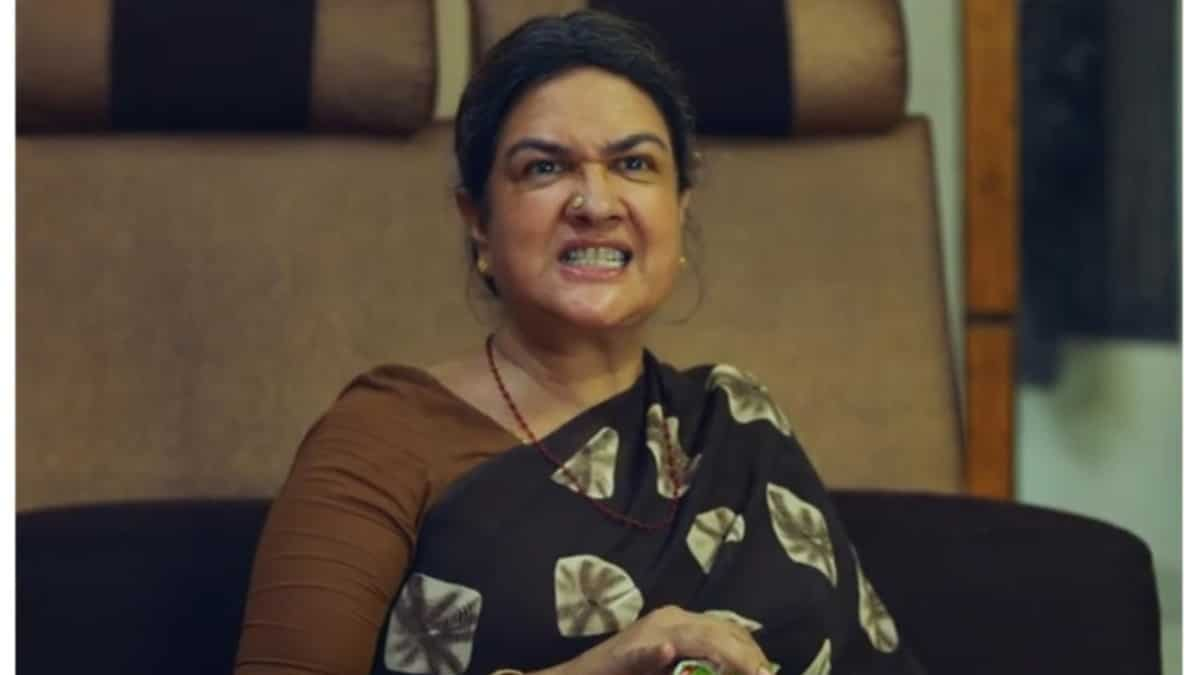
Did it help that you came from a privileged background, from a family with roots in the arts?
Yes. Definitely. We were taught to be bold, and also to leave in the first vehicle at any sign of trouble. We were told to never sacrifice anything for work. I would always have two female staff in my room, and would never meet anyone but in a public place or office, with the door open.
I am grateful the Hema Committee report came out because it will create a sense of fear among the perpetrators that they will be called out, and punished. However, I am waiting for the day the Court rules that the names of the abusers should be revealed, and not redacted. This is an opportunity for us to make the industry safer for all. We should take it, and bring about a change.
What’s your hope for women in the industry?
More and more women should enter films. We need more women in positions of power — director, cinematographer, editor, writer… Then, you can expect a revolution.
#




